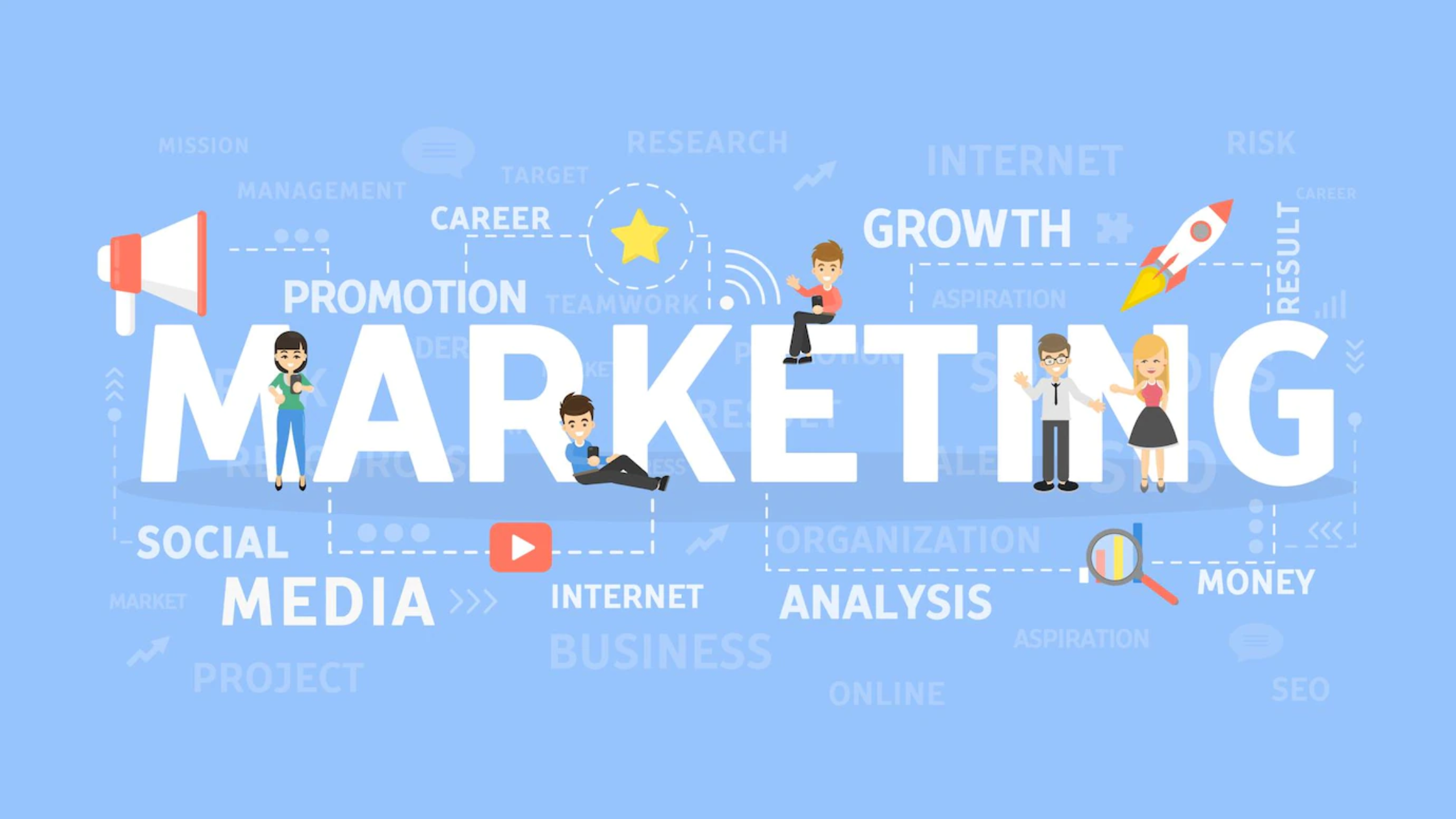What is Marketing?
A company’s focus is to spark the attention of potential customers or clients with its products and services. Marketing includes distributing, selling, and researching your products or services.
In order to attract, acquire, and retain customers, this discipline focuses on the study of the market and consumer behavior. It also examines how businesses manage their commercial operations to meet customer demands and foster brand loyalty while attracting new customers.
Marketing is all around us, whether we realize it or not. Everyday examples include billboards along a highway, TV commercials, magazine ads, brand posts on social media, and tailored website content. Let us jump into knowing the different Types of Marketing:
Types of Marketing
1. Offline marketing:
Offline marketing is one of the most used forms of publication, it is advertising on various kinds of channels besides online media. This is the classic way that was used before the internet and is still widely applied by almost all large and small businesses that want to maintain their market position.
2. Digital Marketing:
Using digital channels to promote goods and services to people is referred to as “digital marketing.” It uses websites, mobile devices, social media, search engines, and other channels with similar functions. The introduction of the internet in the 1990s gained popularity and is typically thought of as a new way for businesses to interact with customers and comprehend their behavior. It has some of the same ideas as traditional advertising. Organizations frequently blend traditional and digital market strategies for better growth.
3. Inbound Marketing:
Inbound marketing is a strategy for expanding your business by establishing meaningful, long-term relationships with consumers, prospects, and customers. It is about appreciating and empowering these individuals to achieve their objectives at any stage of their journey with you. This form of advertising is gaining more attention day by day. As part of an inbound sales strategy, you develop content or use social media tools to raise brand recognition. As a result, more people will become aware of you, visit your website for details, express interest in your products, and maybe buy them.
4. Outbound Marketing:
Outbound marketing is a type in which a company initiates the interaction and delivers its message to a target audience. It is the reverse of inbound strategy, in which clients find you when they need you. It includes activities such as trade shows, seminar series, and cold calling. Ironically, businesses still devote up to 90% of their advertisement spending to outbound publications, even though it is typically more difficult to track and less profitable than inbound publications.
5. Social Media Marketing:
The term “social media marketing” (SMM) refers to a form of advertising where people use social media platforms, here users may create social networks and share content, to advance a business’s brand, boost revenue, and improve website traffic. SMM gives businesses a method to interact with current consumers and attract new ones. It also contains data analytics features that are specifically designed to help marketers monitor the effectiveness of their campaigns and find new opportunities for interaction.
6. Content Marketing:
It is a method of engaging your audience and increasing your client base via the creation of relevant and valuable content. In this form, content plays a vital role. This tactic can draw in, engage, and benefit a brand’s target market, enhance consumers’ perception of your brand, and increase revenue for your company. It is now a deliberate investment to increase corporate performance rather than a market fad. A brand can increase its relevance, visibility, and customer recognition through content.
7. Email Marketing:
Email marketing is a form of direct advertising in which you send customized emails to your email list to educate them about your product or service. It can also be used to encourage your email list to carry out a certain action, such as making a purchase, scheduling a demo, enrolling in a trial, or signing up for an event. Email strategy regularly outperforms all other channels as the most direct and efficient way to engage with prospects, nurture them, and convert them into customers.
8. Search Engine Marketing:
To assist businesses’ content rank higher among search engine traffic, there is a technique called search engine marketing (SEM). SEM helps businesses in enhancing how the content is listed by search engines, much like search engine optimization (SEO). People are paying handsome amounts for this form of advertising. Through the use of paid search engine advertising, SEM assists businesses in attracting customers’ attention to their goods and services. Using the SEM method, businesses purchase targeted ad space at the top of search engine result pages (SERP). This method differs from SEO, which focuses on optimizing content for search engine algorithms to increase the content’s visibility on search engine result pages (SERPs).
9. Affiliate Marketing:
It is the practice of earning money online each time a customer buys a product based on one’s recommendation. After covid, it has gained growth, especially among the youth. This internet sales strategy enables the “affiliate,” to make money while also assisting the product owner to boost sales. Here, a product or service is promoted by being shared on a blog, social networking site, or website. It is an excellent technique to increase sales and create a considerable online income.
Wrapping it up:
With each passing day, new forms of marketing emerge, and you can use these techniques and strategies effectively to market your product and services and grow your Business. Businesses must know which type will best suit them in attracting customers, profitable gains, growth, and more. Each type has its pros and cons, but choosing the best type is how you develop more traffic to your Business.





